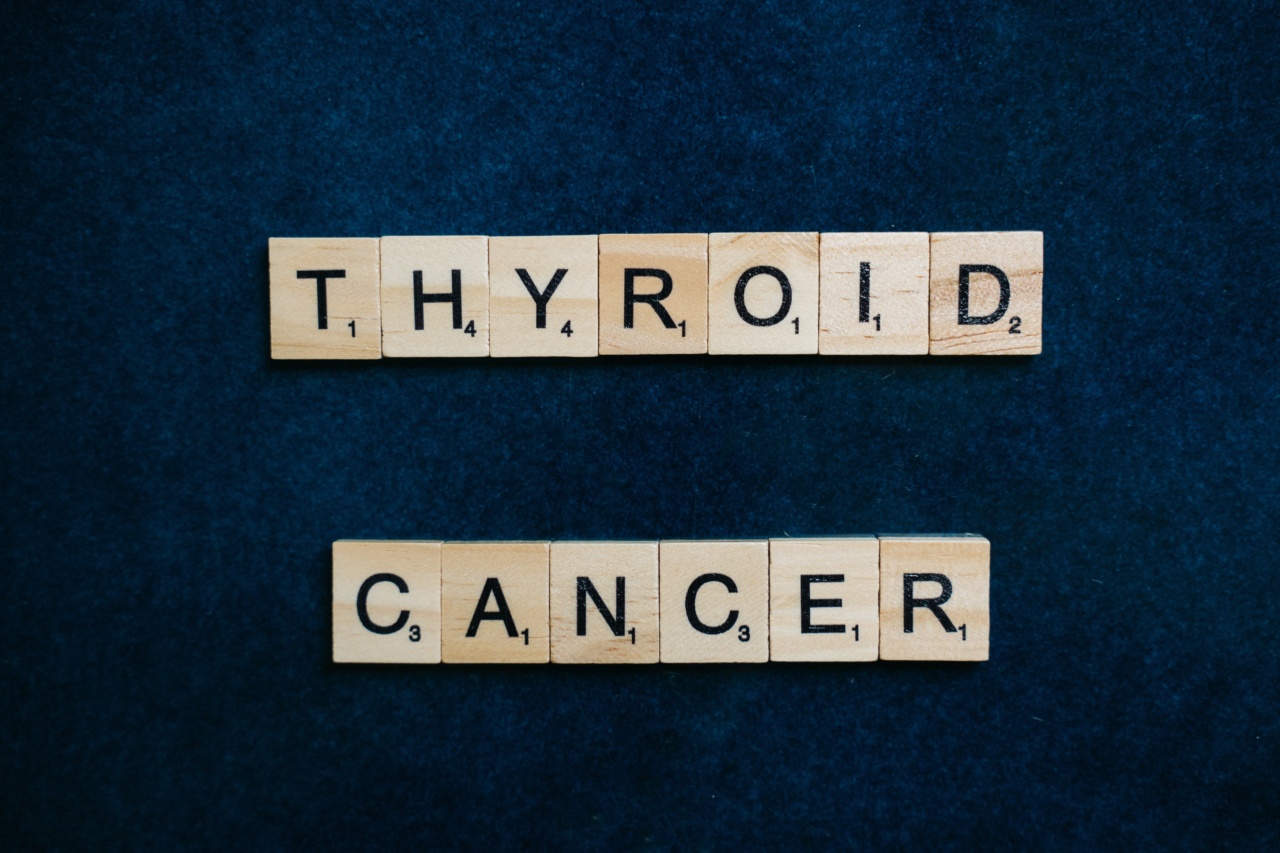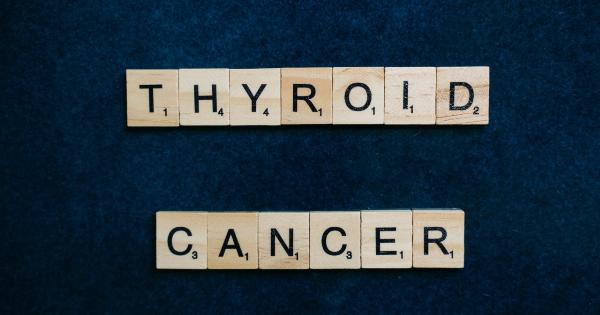Thyroid cancer is a type of cancer that affects the thyroid gland, a small butterfly-shaped gland located at the base of the neck. It is a relatively rare form of cancer, accounting for less than 1% of all cancers.
However, thyroid nodules, which are abnormal growths or lumps that form within the thyroid gland, are quite common. In this article, we will explore thyroid cancer and nodules in detail, including their causes, symptoms, diagnosis, and treatment options.
The Thyroid Gland and its Functions
Before delving into thyroid cancer and nodules, it is important to understand the role of the thyroid gland in the body. The thyroid gland produces thyroid hormones, namely triiodothyronine (T3) and thyroxine (T4).
These hormones are vital for the proper functioning of various organs and metabolic processes in the body, including regulating body temperature, heart rate, and metabolism.
What are Thyroid Nodules?
Thyroid nodules are abnormal growths or lumps that form within the thyroid gland. These nodules can vary in size, ranging from a few millimeters to several centimeters.
While most thyroid nodules are non-cancerous (benign) and do not cause any symptoms, some nodules can be cancerous (malignant) and require medical attention.
Causes of Thyroid Nodules
The exact cause of thyroid nodules is often unknown. However, several factors can contribute to their development. These include:.
- Genetic predisposition
- Iodine deficiency
- Autoimmune diseases such as Hashimoto’s thyroiditis
- Exposure to radiation, particularly during childhood
- Hormonal imbalances
Symptoms of Thyroid Nodules
Most thyroid nodules do not cause any noticeable symptoms. However, if the nodules grow larger, they may cause the following symptoms:.
- Swelling or lump in the neck
- Hoarseness or voice changes
- Difficulty swallowing
- Difficulty breathing
- Persistent cough, not associated with a respiratory infection
- Neck pain or discomfort
- Enlarged lymph nodes in the neck
Diagnosis of Thyroid Nodules
If you notice any symptoms or your doctor suspects the presence of thyroid nodules, they may recommend the following diagnostic tests:.
- Physical examination: Your doctor will examine your neck for any swelling or abnormalities.
- Thyroid function tests: These tests measure the levels of thyroid hormones in your blood.
- Ultrasound: An ultrasound of the thyroid gland can provide detailed images of any nodules present.
- Fine-needle aspiration biopsy (FNAB): In this procedure, a small sample of cells is extracted from the nodules using a thin needle and examined under a microscope to determine if they are cancerous or benign.
Types of Thyroid Cancer
Thyroid cancer can be broadly classified into four main types:.
Papillary thyroid cancer:
Papillary thyroid cancer is the most common type, accounting for about 80% of all thyroid cancer cases. It usually develops in one lobe of the thyroid gland and tends to grow slowly. It has a high survival rate if detected early.
Follicular thyroid cancer:
Follicular thyroid cancer is the second most common type and usually affects older individuals. It typically spreads to nearby lymph nodes and distant sites, such as the lungs and bones. Early detection and treatment are crucial for a favorable outcome.
Medullary thyroid cancer:
Medullary thyroid cancer originates from the C cells of the thyroid, which produce calcitonin, a hormone that helps regulate calcium levels. It may occur sporadically or in association with certain genetic syndromes.
Prompt diagnosis and treatment are essential for managing this type of cancer.
Anaplastic thyroid cancer:
Anaplastic thyroid cancer is the most aggressive form of thyroid cancer, but fortunately, it is also the rarest. It grows rapidly and has a poor prognosis. Treatment may involve surgery, radiation therapy, and chemotherapy.
Treatment options for Thyroid Cancer
The treatment approach for thyroid cancer depends on various factors, including the type and stage of the cancer, as well as the patient’s overall health. The primary treatment options include:.
- Surgery: Surgery involves the removal of the cancerous thyroid gland, as well as nearby lymph nodes if necessary.
- Radiation therapy: High-energy radiation is used to kill cancer cells and shrink tumors.
- Radioactive iodine therapy: This treatment option is suitable for certain types of thyroid cancer, as the thyroid gland absorbs iodine. Radioactive iodine is administered orally to destroy any remaining cancer cells after surgery.
- Chemotherapy: Chemotherapy drugs are used to kill cancer cells throughout the body. This treatment is more often used for anaplastic thyroid cancer.
Follow-up and Prognosis
After initial treatment, regular follow-up appointments are necessary to monitor the patient’s condition and assess the effectiveness of the treatment.
The prognosis for thyroid cancer is generally favorable, with high survival rates, particularly for papillary and follicular thyroid cancers. However, the prognosis for anaplastic thyroid cancer is more guarded due to its aggressive nature.
Conclusion
Thyroid cancer and nodules can cause concerns, but with timely diagnosis and appropriate treatment, most cases can be effectively managed. Regular check-ups and self-examinations of the neck can help detect any abnormalities early.
If you experience any symptoms related to thyroid nodules or suspect a problem, consult a healthcare professional for an accurate diagnosis and personalized treatment plan.




























